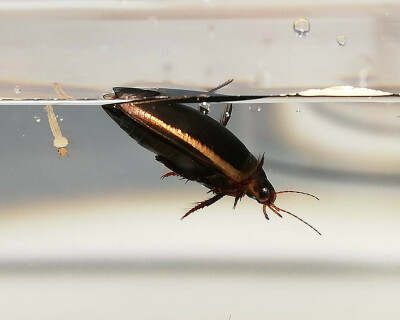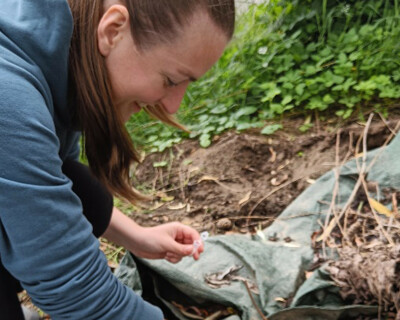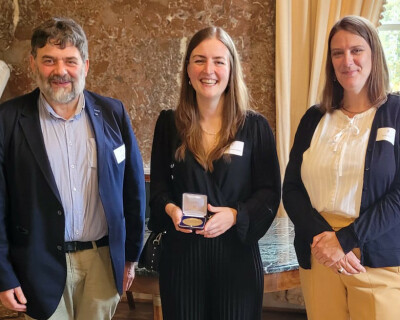Medical entomologist Adwine Vanslembrouck nominated for New Scientist Science Talent
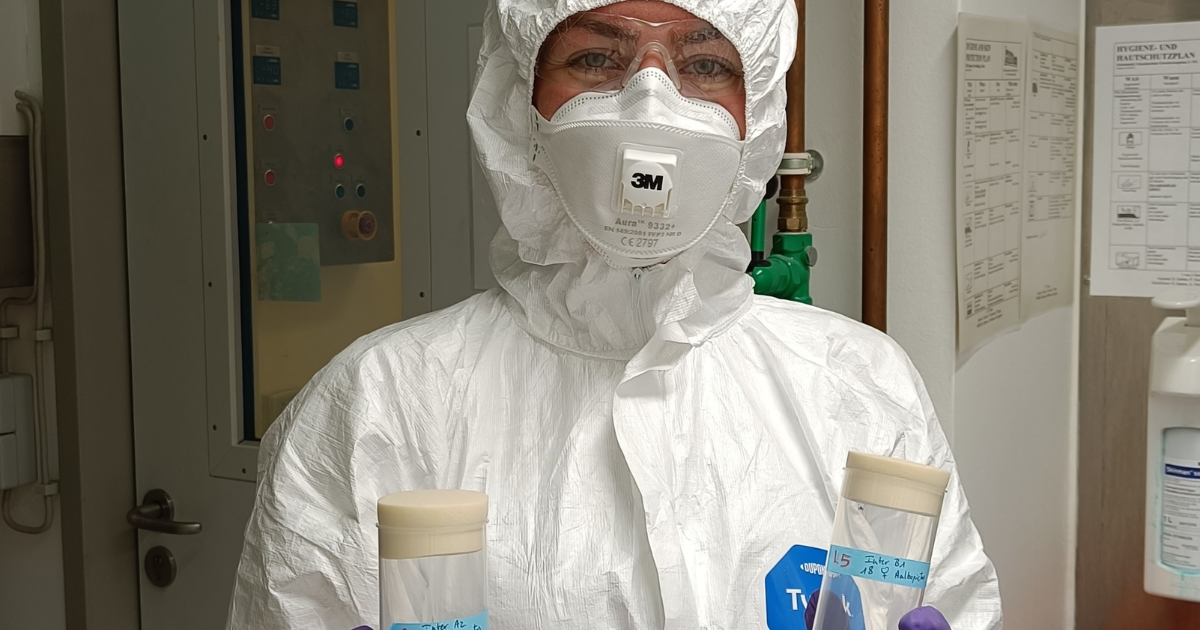
Medical entomologist Adwine Vanslembrouck has been nominated for the New Scientist Science Talent 2025, by which the science magazine New Scientist crowns the top scientific talent of the Netherlands, Flanders and Brussels. You can vote for your favourite scientist of 15 nominees at newscientist.nl until 8 September. The award ceremony will take place in October.
A pond, a mosquito larva, a predatory beetle. For ITM’s medical entomologist Adwine Vanslembrouck, these tiny creatures are key to answer a major challenge: combating mosquito-borne viruses such as dengue, chikungunya and West Nile.
"The search for nature-based solutions for mosquito control motivates me tremendously," says Adwine, who has been nominated for the New Scientist’s Science Talent this year. "With insecticides and traditional control methods losing their effectiveness, I see it as my challenge and responsibility to develop innovative, sustainable strategies."
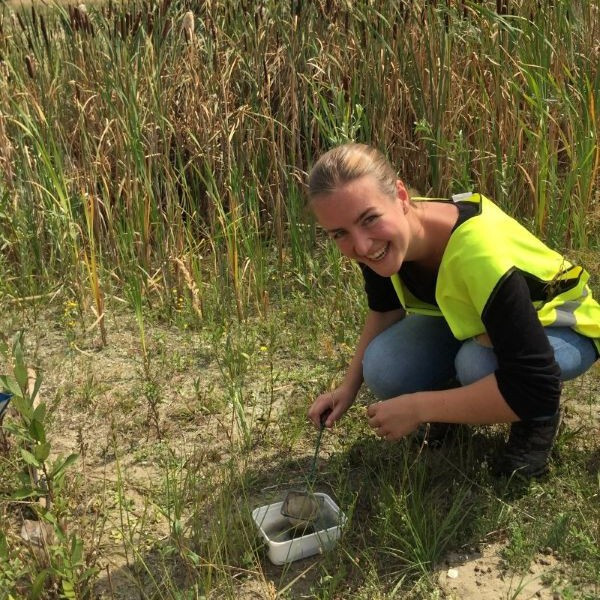
Mosquitoes in a changing ecosystem
During her research, Adwine discovered how subtle changes in the ecosystem can affect the way mosquitoes spread viruses. One striking finding: larvae that grow up with other mosquito species develop differently, directly influencing their vulnerability to viruses.
"Adult mosquitoes were found capable of carrying viral infections when their larvae grew up in mixed groups. This mutual competition causes adaptations in metabolism and behaviour, making them more susceptible to viruses such as chikungunya and West Nile virus."
The advance of the exotic tiger mosquito in Europe is also a cause for concern. "Tiger mosquito larvae appear to gain an advantage by competing with native species such as the garden mosquito. This may help explain their rapid spread."
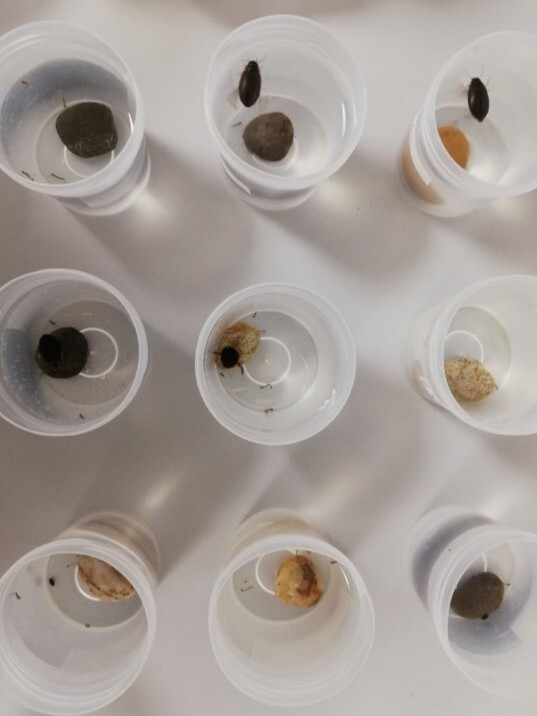
Insecticides are becoming less effective
The need for alternative strategies is becoming increasingly apparent. "We found widespread resistance in house mosquitoes to three of the five insecticides tested in Belgium. Incipient resistance may have been present against a fourth agent. Only one insecticide still remained effective."
Even in a popular biocide, which is often used against mosquitoes, she detected resistance. "That is alarming. It shows that we urgently need to move towards complementary, ecologically sound solutions."
One such solution Adwine found in an unexpected corner: predaceous diving beetles that are native to Europe. "They turned out to be remarkably efficient in suppressing mosquito populations. Such natural enemies could play a key role in future control strategies."
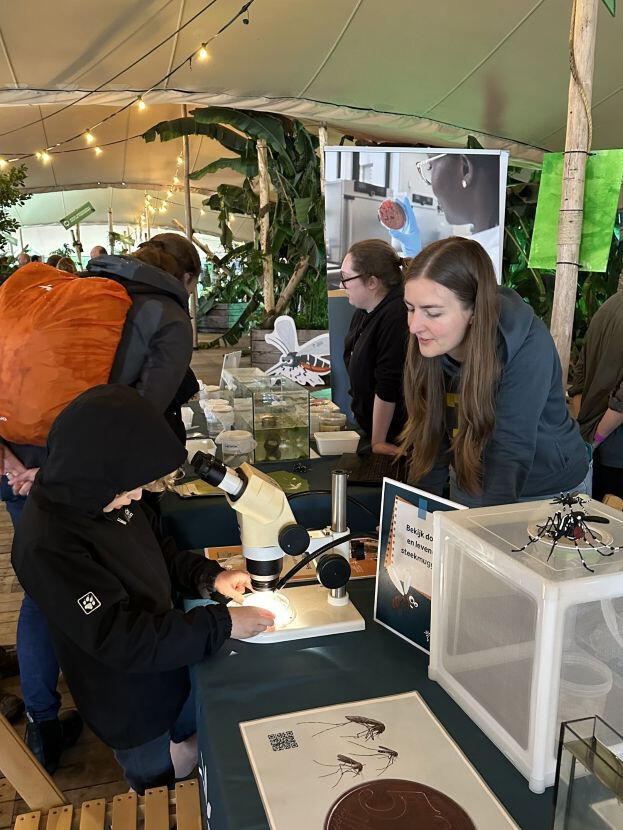
From scientific finding to policy impact
Adwine's work has not stayed in the lab. It links closely to current European policy issues on insecticide resistance. Her findings have been included in a WHO report and support international efforts for more sustainable vector control. "That is exactly where science and policy should meet: in the pursuit of an approach that is both effective and ecological."
She also plays an active role in science communication, delivering lectures on Science Day and at the Belgian Association for Diseases in Wild Animals, supporting the Nerdland Festival and contributing to citizen science projects on the tiger mosquito.
Her international experience is extensive: conducting training and fieldwork in the DRC and Germany, presentations at conferences from Finland to Nepal, and mentoring seven students during her PhD.
For her contribution to tropical medicine, she was awarded the Dubois-Brigué Scholarship grant in tropical pathology in 2023.
Voting for Science Talent 2025
The prestigious New Scientist Science Talent award honours young researchers who are making a difference. Voting is possible via newscientist.nl until 8 September.
The top five candidates with the most votes will be assessed by a jury, which will choose the final winner in October. The laureate will receive €1,500, a trophy, media attention and an invitation to speak at the Gala van de Wetenschap in the Amsterdam International Theatre on 25 November 2025.
Spread the word! Share this story on
